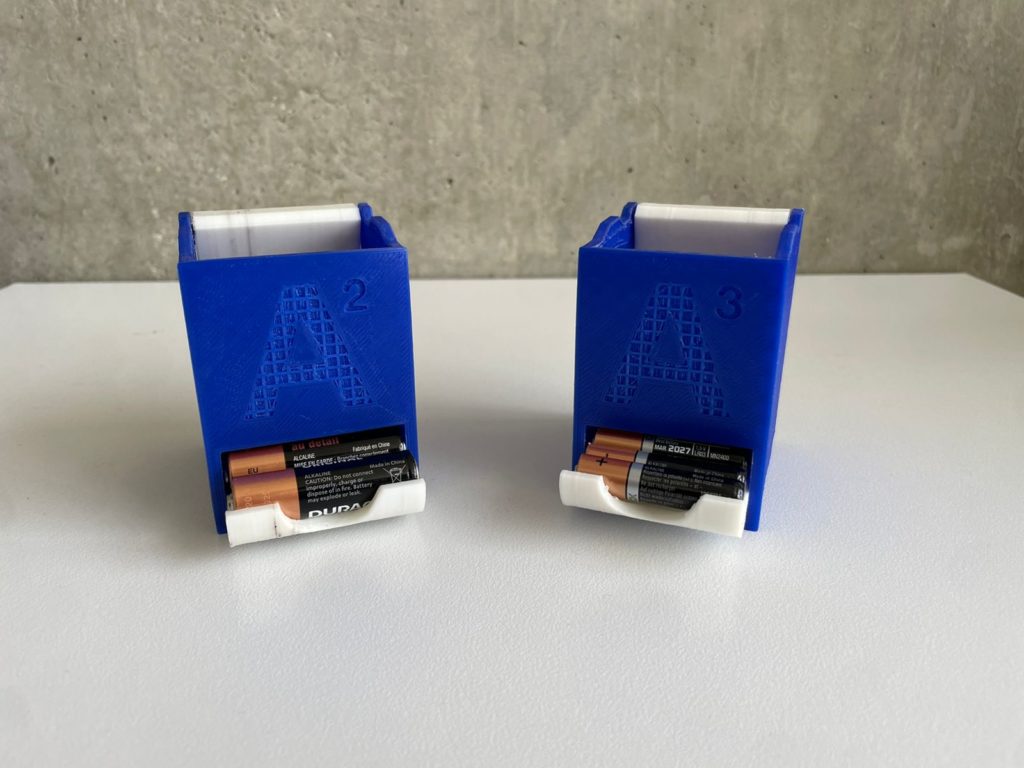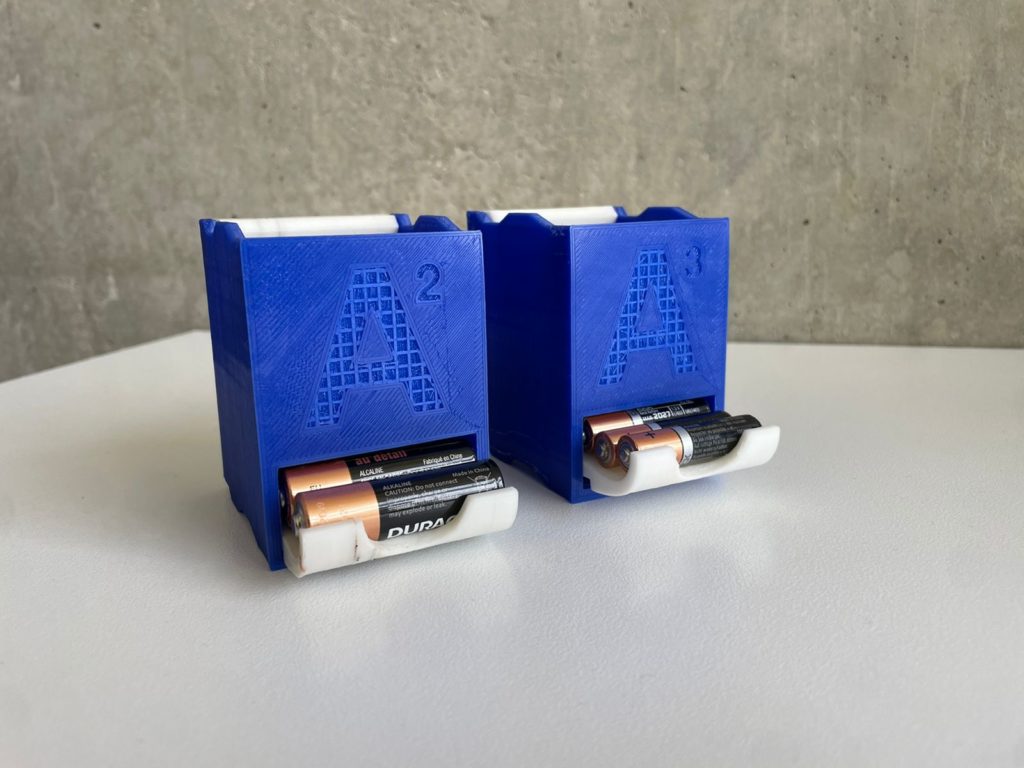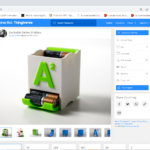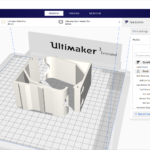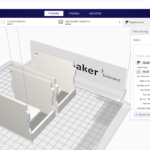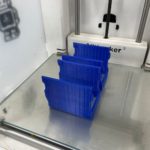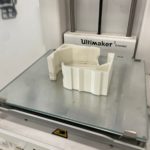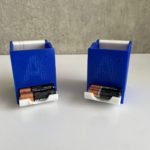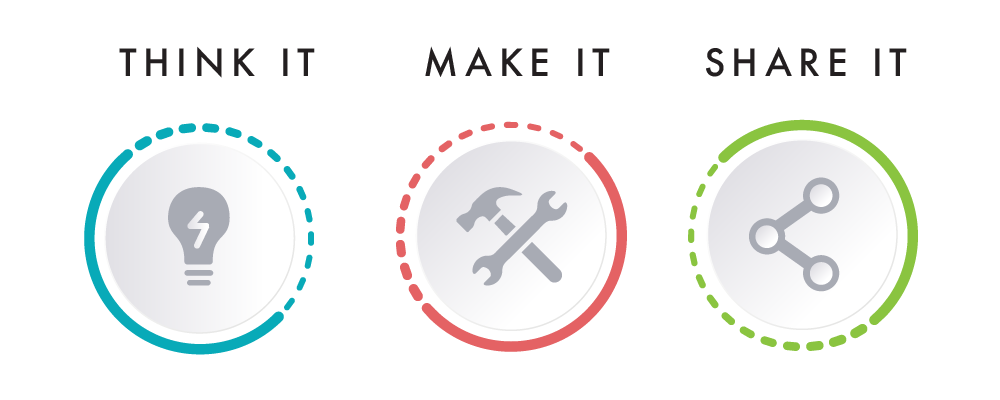This section describes the different steps followed to produce Battery Dispensers for your AA and AAA batteries.
Step 1 : Download the Design
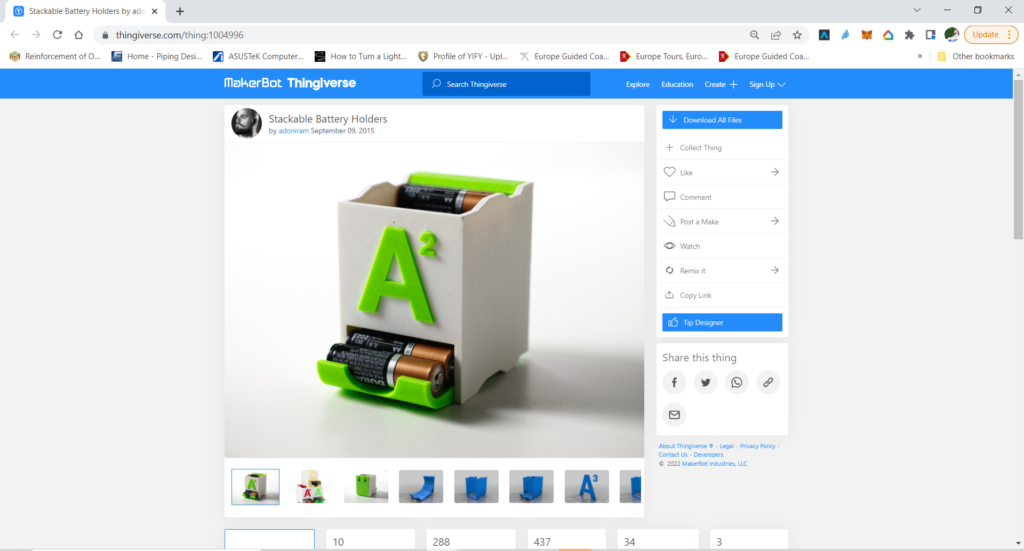
In order to produce a 3D object using 3D Printing, you need to have its digital design in .STL format.
In this example, the Stackable Battery Holder was designed by Adiniram and downloaded for free from Thingiverse.com using this Link
Step 2: Slicing – Preparing The File For 3D Printing
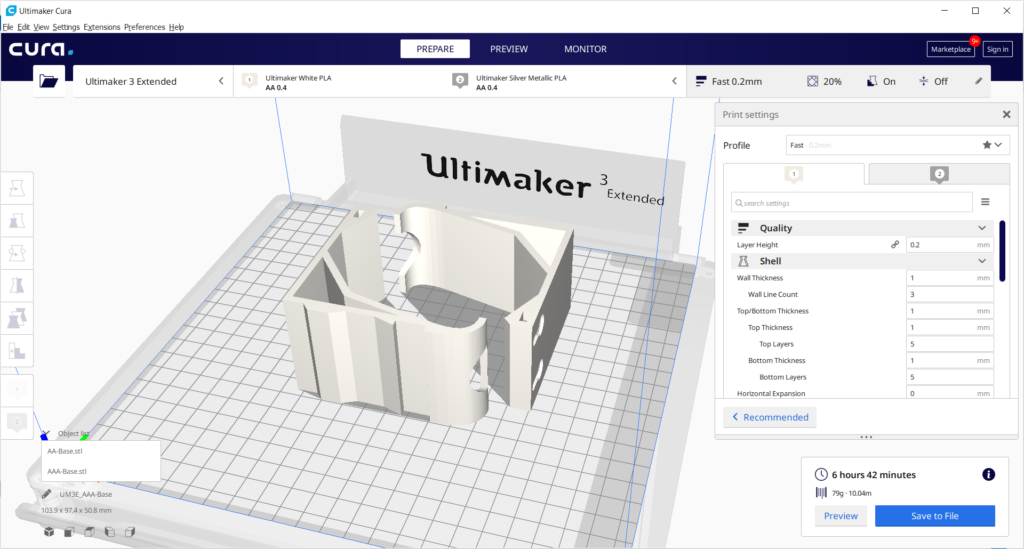
The STL file is then imported into a slicing software, like Cura. In this projects, parts were printed using different colors, Blue and White, so we had to prepare two different individual files for 3d printing. Choose the settings that are needed to have a successful print.
- Choose Your Material: Typically you may have an idea about what kind of material you will use before you print. There are many different 3D printing materials available, and you can choose them based on the properties that you want your object to have. In this project PLA filaments were used.
- Choose Your Parameters: The next step is then deciding on the different parameters of your object and the printing process. This includes deciding on the size and placement of your print. The layer thickness chosen was 0.2mm which produces a normal surface finish. The infill chosen was 20% which is enough for a small bowl with a small wall thickness. No support where required in this print.
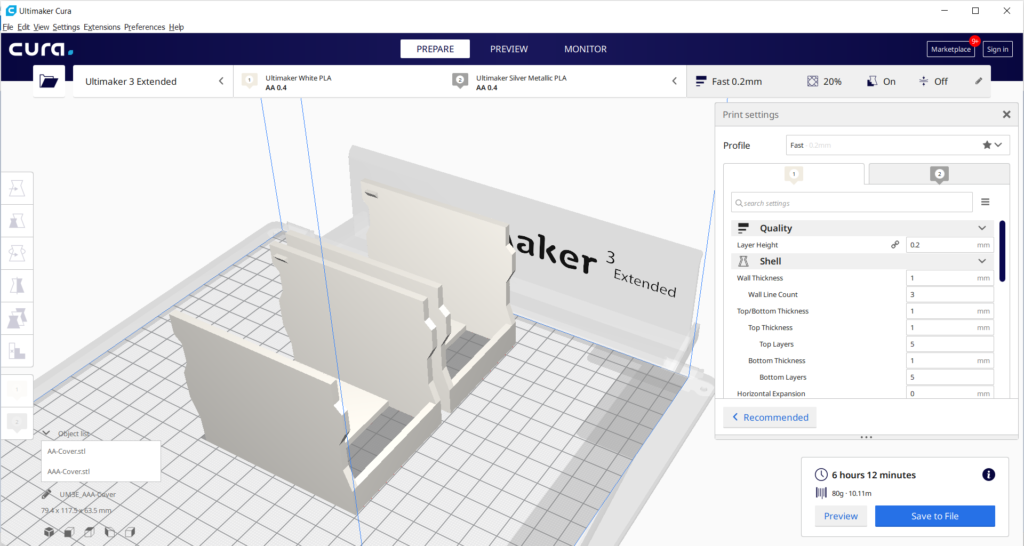
The slicing software will then convert the information from the STL file into a G-code, which is a specific code containing exact instructions for the printer.
Step 3: 3D Printing
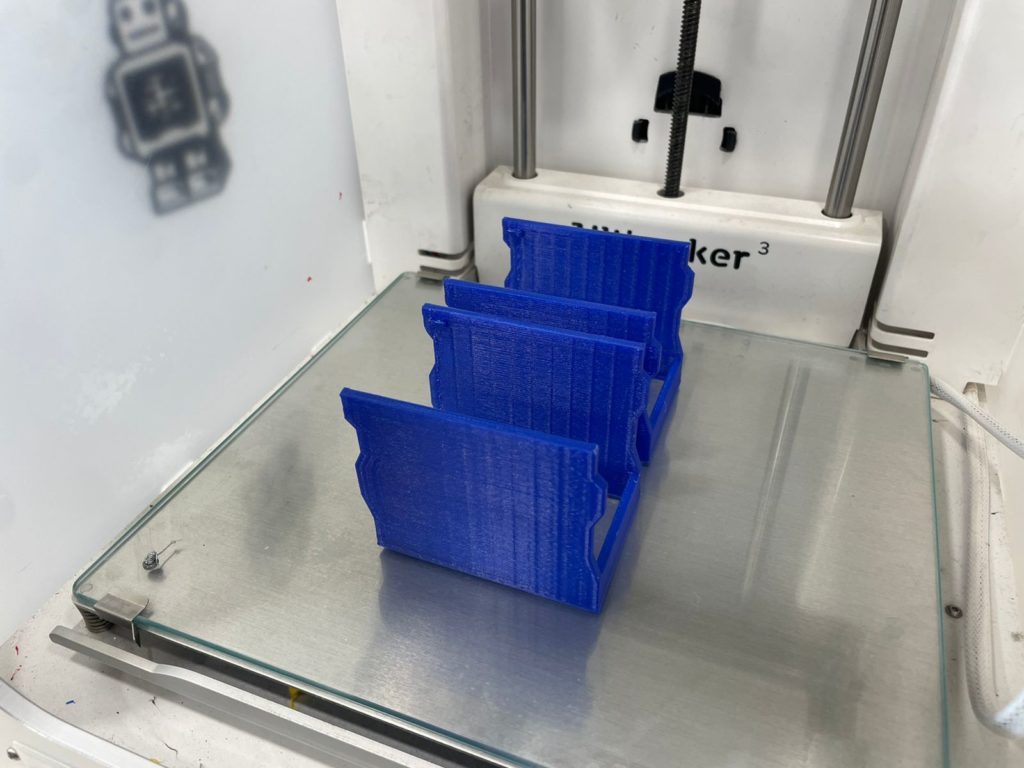
The printer will create the object layer by layer. Depending on the size of your object, your printer, and the materials used, the job can be done in a matter of minutes or over several hours. In this example, the printing process took around 6 hour and 12 minutes.
Step 4: Remove Your Print And Clean
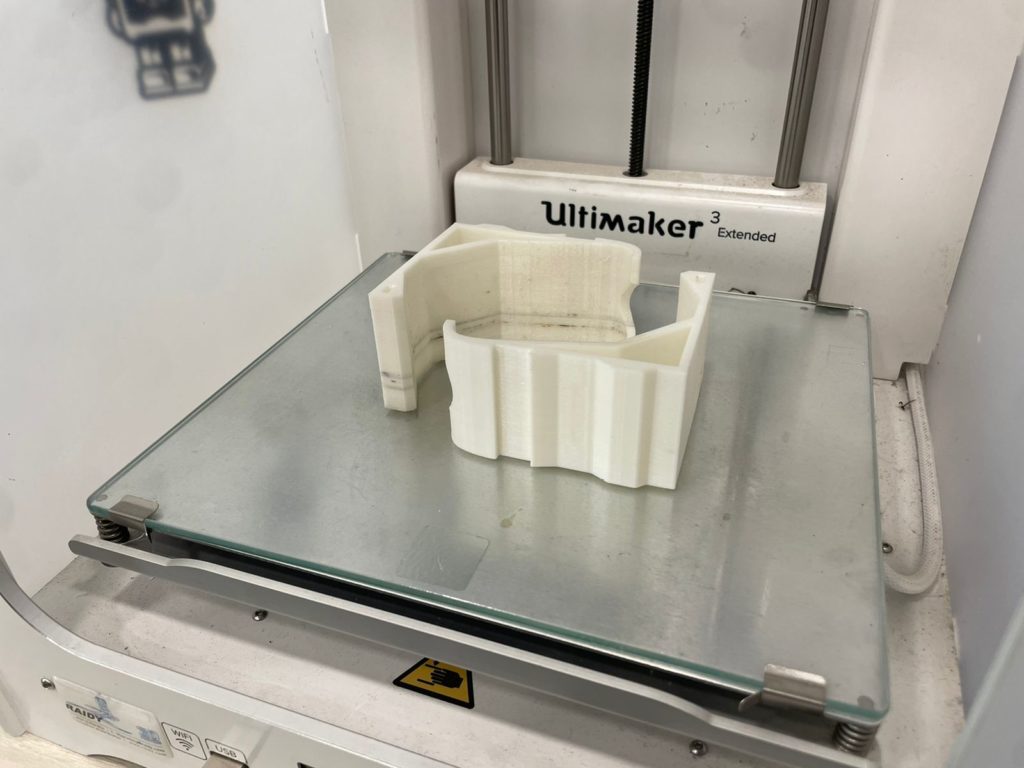
Remove the printed part from the printer’s printing bed after it cools down.
Depending on what you want your final product to be or the material you used, there may be additional post-processing steps after printing, like painting, brushing off powder, etc.
Step 5: Assemble your parts and enjoy your new Battery Dispenser
